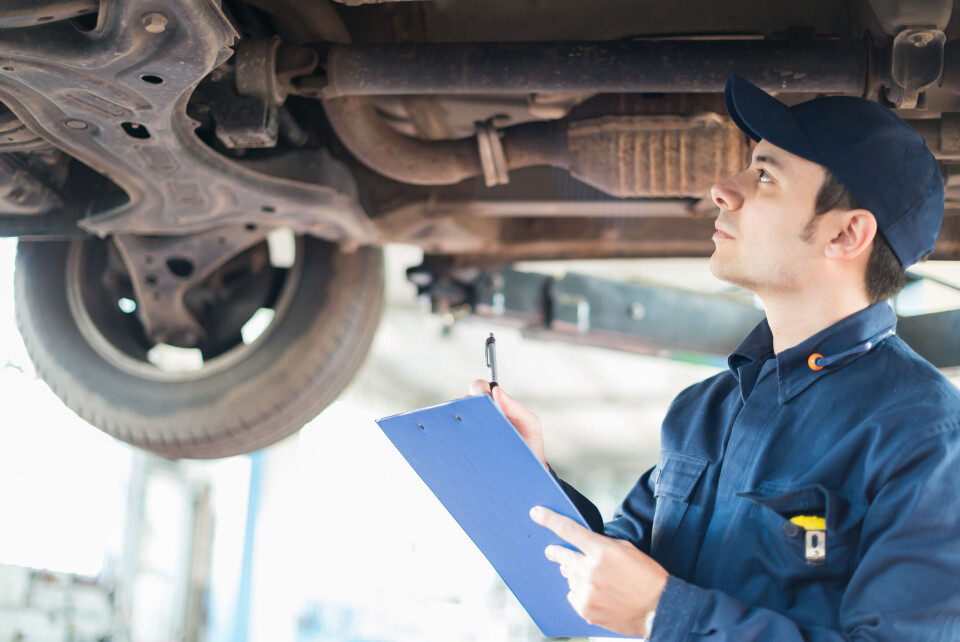-
Key Alpine pass to reopen this summer after €6m repairs
The col d'Allos in Alpes-de-Haute-Provence has been closed since 2023 due to severe weather
-
Why 500,000 people in France will soon be getting a call from health officials
A new campaign will target certain individuals with particular health conditions
-
Receive a book and a rose: France prepares to celebrate its independent bookshops
The 27th edition of the Fête de la librairie indépendante will take place tomorrow (April 26)
France’s vehicle safety checks are changing. Here is how
Two new checks are being added to France’s mandatory vehicle roadworthiness tests, bringing the total to 136 - but not all cars will be affected

Anyone who owns a car in France will be familiar with the biennial vehicle safety checks, called the contrôle technique (CT).
It is the main roadworthiness test for vehicles older than four years that weigh under 3.5 tonnes.
While that is nothing new, there are important changes to the contrôle technique that you need to be aware of.
Saturday (May 20) saw the implementation of two new checks to the test.
They concern the European ‘eCall’ emergency system installed in modern cars and the energy consumption of new vehicles.
Not all cars will have these features, however, as they have only been installed in new cars since 2018 and 2021 respectively.
Furthermore, some new cars will not see their energy consumption tested because the vehicles are less than four years old, and therefore do not need to undergo a CT test before this.
For affected cars, it means there will now be 136 items tested as part of the inspection.
There is not too much need to fret, however, as mechanics say the additional tests are rapid and price increases will only be “marginal” for vehicle owners affected.
Read also: France driving: What must residents and visitors carry in their cars?
Emergency contact system now tested
The first new check is regarding the ‘eCall’ emergency calling system.
Fitted into all new vehicles since April 1, 2018, this system allows for the automatic or manual contacting of emergency services via your car.
The system also provides emergency services with additional information about the state of your car, including its location.
Mechanics will check 13 possible faults with the system, but only one (a total or partial failure of a key part of the system’s hardware) will result in failure and a subsequent call-back to fix the issue - all others will be classed as minor faults.
These checks will not increase the price of getting a contrôle technique (which is currently around €80), and on top of this, “will only last a few seconds,” Geoffrey Michalak, technical and training Director at the SGS Group, told Capital.
Read also: Do you get a notification when car’s contrôle technique test is due?
Other test focuses on energy consumption
The second new test is an ecological one – mechanics will check the OBFCM (On Board Fuel Consumption Monitoring) device.
This has been required on all new cars since January 1, 2021, and measures the volume of fuel burnt and electricity consumed in all combustion and hybrid engine vehicles.
This information will be collected (with the car owner’s approval) and then sent - via CT regulatory group UTAC (Union Technique de l'Automobile, du Motocycle et du Cycle) - to the European Commission.
Here, it will be compared to predicted emissions data from vehicles to check the overall energy efficiency of car types.
Once the data is forwarded to the UTAC, the centre where you took your CT test has to delete it from their servers.
Although the test itself does not take long for mechanics to do, conveying the information to the UTAC after the test is more time-consuming, with the additional time spent to be reflected in changes to the price of the test.
“There will probably be price increases, but not by 15-20%, it will be very marginal,” said Mr Michalak.
Read also: Environment news round up in France this May
This inspection is only currently valid for vehicles that must take an annual test (such as ambulances, medical vehicles, taxis, etc) – for other drivers, it will come into force in 2025 because new cars do not need a test for the first four years they are on the road.
If you want to know more about CT tests, you can read our explainer article for drivers here.
Related articles
New push to introduce vehicle safety checks for motorbikes in France
























